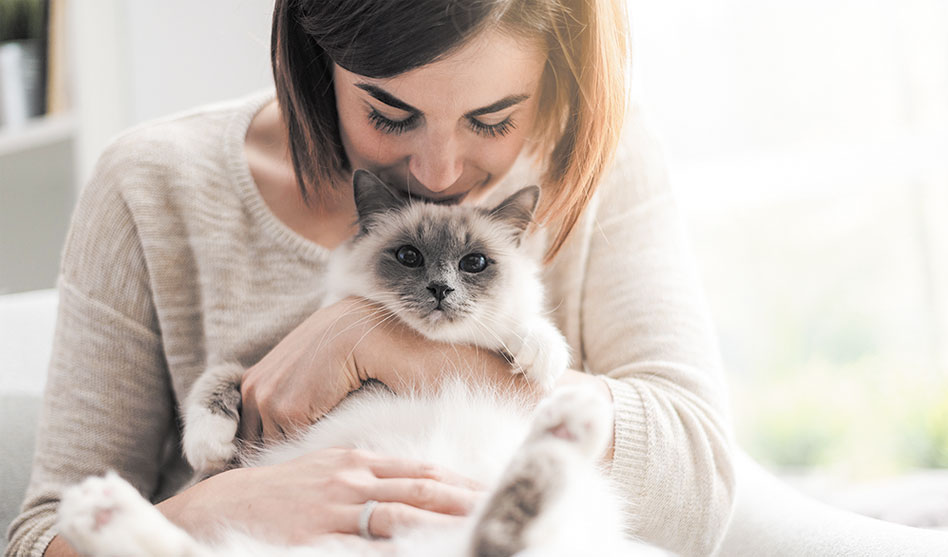Know the facts about animals and SARS-CoV-2 to keep your pets safe
From Staff Reports
 The Texas Animal Health Commission recently announced in a statement that a Fort Worth-area dog was confirmed to have SARS-CoV-2, the virus that causes COVID-19. A private veterinarian tested the pooch as a precaution after its owners were confirmed to have COVID-19.
The Texas Animal Health Commission recently announced in a statement that a Fort Worth-area dog was confirmed to have SARS-CoV-2, the virus that causes COVID-19. A private veterinarian tested the pooch as a precaution after its owners were confirmed to have COVID-19.
The veterinarian reported the 2-year-old dog is otherwise healthy, according to the commission statement.
The dog is not the first animal in the nation to test positive for the coronavirus: Ten other animals have tested positive for the virus, according to the U.S. Department of Agriculture Animal and Plant Health Inspection Service website.
State Veterinarian Dr. Andy Schwartz assured that there is no known evidence that pets can transmit the virus, but they can catch it. He advised that pets be restricted from contact with persons with the coronavirus.
According to the Centers for Disease Control, although the exact source of SARS CoV-2 (the coronavirus that causes COVID-19) is unknown, scientists have confirmed that the virus originated in an animal, most likely a bat. Still, there is no evidence at this time that animals play any significant role in the continuing spread of the virus. The risk that an animal might pass the virus to a human is low, the CDC notes.
But, as noted above, people can — and have — passed the virus to animals. The first case in the U.S. of an animal testing positive for COVID-19 came in April when a 4-year-old female Malayan tiger named Nadia at the Bronx Zoo tested positive for the virus. Zoo officials noted at the time that “three other tigers and three African lions were showing similar symptoms.”
By April 23, a total of eight big cats at that zoo were confirmed to have tested positive for the virus.
According to a statement from zoo officials, the animals apparently contracted the virus from “a person caring for them who was asymptomatically infected with the virus before that person developed symptoms.”
The big cats all recovered.
According to the CDC, SARS-CoV-2 has also been found in mink on multiple farms in the Netherlands, which have experienced an increase in mink deaths. The sick animals showed respiratory and gastrointestinal symptoms. Some cats on the mink farms also developed antibodies to the virus, suggesting they, too, have been exposed to the virus.
The CDC website notes that officials in the Netherlands believe the animals were all exposed by contact with infected humans and are “investigating the connections between the health of people and animals as well as the environment on these mink farms.”
Ongoing research
CDC officials said there has been limited research regarding SARS-CoV-2 in animals, but there are some studies underway. Research has shown that ferrets, cats and golden Syrian hamsters infected with the virus can spread that infection to other animals in the same species in a laboratory setting. And a separate study has shown that rhesus macaques, cynomolgus macaques, Grivets and common marmosets can become infected SARS-CoV-2 and get sick in a laboratory setting.
Other studies have shown that mice, pigs, chickens and ducks do not appear to become infected or spread the virus, while dogs can get infected but may not spread the virus to other dogs as cats, ferrets and hamsters can to others of their own species.
Protecting your pets
Although the risk of animals spreading SARS-CoV-2 to humans appears to be low, the CDC does encourage everyone with pets to take precautions to protect them. The first is to limit your pets’ interactions with people outside their household.
In addition, you should keep your cats indoors whenever possible; do not let them roam freely outside.
When you take your dog for a walk, keep them on a leash and keep them at least six feet away from other people and animals. Just as you should avoid large gatherings, so should your pet. But while humans are urged to wear masks to help stop the virus from spreading, the CDC says not to try and put masks on your pets.
Also, since there is no evidence the virus can spread to people from the skin, fur or hair of your pets, do not bathe or wipe down your pets with chemical disinfectants, alcohol, hydrogen peroxide or any products not approved for use on animals.
While you are not likely to contract SARS CoV-2 from your pets, you can pass the virus to them. So if you are sick or think you might be sick, be sure to take precautions to keep your pets safe.
If you have COVID-19, avoid contact with pets and other animals, just as you would with other humans. Have another member of the household care for your pets when you are ill, and avoid petting, snuggling, being licked by or sharing food with your pet. Don’t let them sleep in your bed with you, either.
If you have to care for your pet or be around them when you are sick, wear a cloth mask and wash your hands before and after interacting with them.
And if you have COVID-19 and your pet does get sick, too, do not take your pet to the veterinarian yourself. Call the vet to look into telemedicine consultations or options.
The best route, of course, is to keep yourself and your pets healthy. That means washing your hands after handling your pets, their food, their waste or their supplies. Practice good pet hygiene as well as good personal hygiene, and clean up after your pets properly.
If you have other questions, ask your vet or visit the CDC’s website.
(The Associated Press and the CDC website contributed to this report.)

